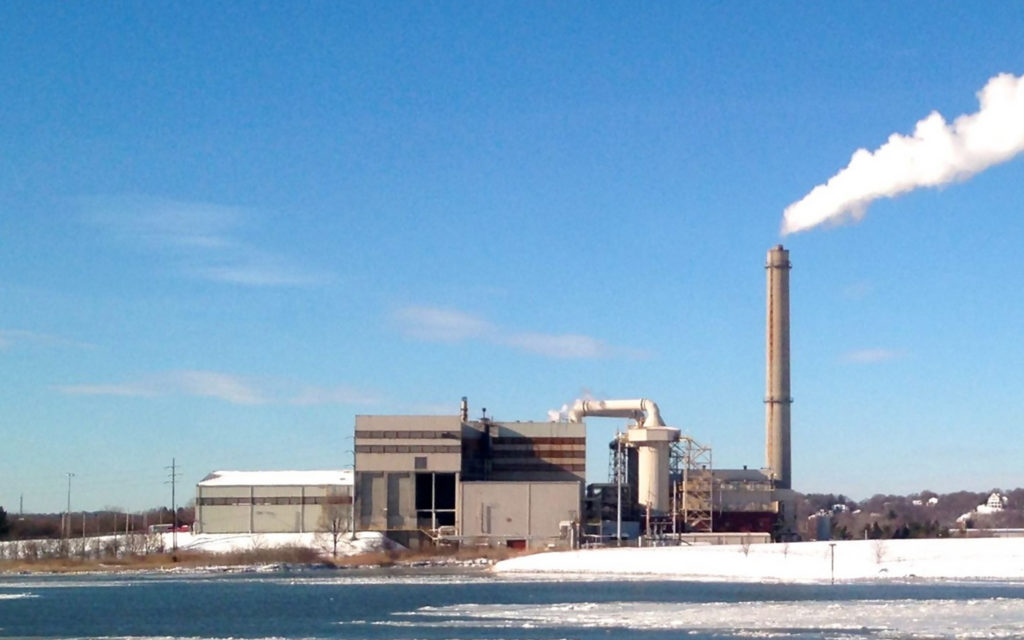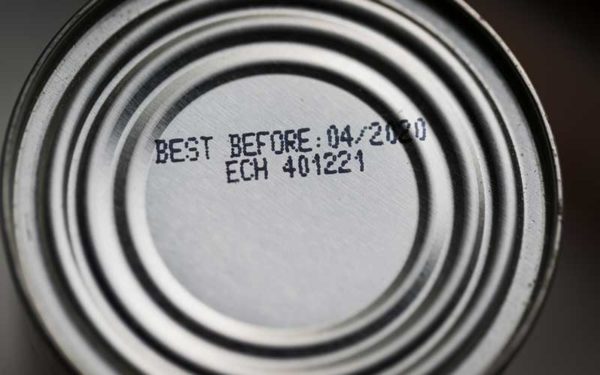
Wheelabrator Landfill in Saugus, MA / Photo: Fletcher6 via Creative Commons 3.0
On November 1, Wheelabrator Saugus, Inc., received a provisional permit from the Commonwealth of Massachusetts to dump another 500,000 tons of toxic ash from burned trash at its Saugus landfill. The permit allows the landfill to operate for five more years – a full 26 years beyond its original shutdown deadline.
Surrounding communities already suffer ill effects from the landfill – and letting Wheelabrator dump even more toxic ash onsite will only put our environment and our communities at risk of further harm.
Landfills Aren’t Safe – and This One is No Exception
This landfill is the only municipal solid waste or ash landfill in the Commonwealth accepting waste into cells that are unlined (none of the 140-acre landfill is lined). Liners are supposed to prevent landfill pollution from leaking into the environment.
But the Saugus landfill rests in water in the middle of Rumney Marsh, so there is nothing to keep the poisonous dioxin and heavy metals in the incinerator ash contained. (While Wheelabrator often claims that the landfill is lined, what they are referring to is the naturally occurring clay soil that happens to be under the landfill.)
We have no way of knowing just how much of that toxic pollution is impacting the Rumney Marsh, however, because the landfill lacks a required groundwater monitoring and reporting system, something present at every other landfill operating in Massachusetts.
Do We Even Need this Landfill?
The landfill’s impact on the local environment alone should be enough for the Commonwealth to deny Wheelabrator’s proposal to expand. But the State also seems intent on ignoring the fact that, if our waste was handled properly, the landfill wouldn’t need to expand at all.
Wheelabrator currently buries 100,000 tons of ash each year, but about 80 percent of the materials burned there (according to the company’s own reporting) are recyclable or compostable. This includes paper, glass, metals, textiles, and mattresses. That means that 80,000 tons of ash every year shouldn’t be created in the first place. If that issue was addressed, Wheelabrator would no longer need more space.
How did we get here?
When it first opened in the 1950s, the landfill accepted only municipal solid waste. The Wheelabrator Saugus Waste Incinerator (also known as “RESCO”) was built in 1974, and since then it has dumped millions of tons of ash on the landfill.
In 1989, the Massachusetts Department of Environmental Protection (MassDEP) declared Rumney Marsh (including the landfill) an Area of Critical Environmental Concern. As a result, it entered into a Consent Order with Wheelabrator whereby the landfill would close in 1996. But rather than holding Wheelabrator to the original terms of the Consent Order, MassDEP has allowed Wheelabrator to not only remain open, but to continuously add more capacity so it could keep receiving ash. The Landfill has now stayed open for 21 years beyond its initial close date.
How can we stop Wheelabrator from expanding?
MassDEP’s decision to approve Wheelabrator’s permit to expand is only provisional. We still have a chance to tell MassDEP that this polluting landfill should not be allowed to expand any further. Your voice matters in this fight, so please, take action today. Here’s how you can help:
- Submit comments to MassDEP prior to close of business (5 PM) on Friday, January 12, 2018 at:
WheelabratorSaugus.MassDEP@state.ma.us
OR:
MassDEP Solid Waste Section
Northeast Regional Office
205B Lowell Street
Wilmington, MA 01887
- Plan on attending the public hearing at the Saugus High School Auditorium on November 30, 2017 at 6:30 PM and speak out against the expansion of the Landfill.
- Call your state senator and state representative and ask them to submit a letter in opposition to the expansion of this facility.
In the weeks to come, CLF will send out action alerts to inform you of other steps you can take. Please start by sending your comment to MassDEP today. And please send a copy to us at CLF, or let us know if you have any questions. (kpecci@clf.org) This may be the most dangerous landfill in Massachusetts, yet MassDEP intends to continue to allow it to expand with no end in sight.



